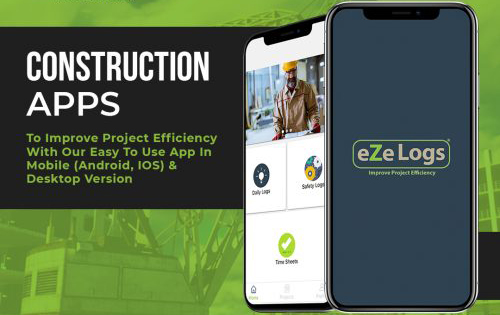As a construction business owner, you understand the importance of your employees as your most valuable resource. However, managing payroll for your construction business can be an immense hassle. From staying abreast of evolving tax laws and regulations to handling payroll for seasonal or temporary employees, managing payroll can be a time-consuming and stressful task that takes you away from running the day-to-day operations of your business.
Effective payroll management is essential for the success of your construction business. Not only does it guarantee that employees receive accurate and timely pay, but it also helps you abide by labor laws and regulations, avoid expensive fines or penalties, and enhance overall financial management.

In this article, we’ll look into the difficulties construction businesses encounter when it comes to payroll management and offer practical tips and solutions for streamlining the process. Whether you’re a business owner or an HR professional, our aim is to help you say goodbye to payroll stress and enhance the efficiency and effectiveness of your construction business’ payroll management in 2023 and beyond.
Key Takeaways
- Effective payroll management is crucial for the success of any construction business.
- Payroll taxes, employee classification, and pay structures are important considerations when managing a construction workforce.
- Using technology solutions and automating wherever possible can streamline payroll processes.
- Accuracy and compliance can be increased, and time can be saved by effective payroll management.
- Managing payroll for seasonal employees and complying with prevailing wage laws are common challenges in the construction industry.
- Implementing best practices and technology solutions can help to overcome these challenges and improve payroll processes.
Use the software to manage the whole Payroll management process
Understanding Payroll Management for Construction Businesses
Effective payroll management is a crucial aspect of any business, including the construction industry. For construction business owners and HR professionals, understanding payroll taxes, employee classification, and pay structures are important considerations when managing their workforce.
Payroll taxes are a necessary deduction from employees’ paychecks that must be paid to the relevant tax agencies. In construction, common payroll taxes include Social Security, Medicare, federal and state income taxes, as well as unemployment taxes.
Proper employee classification is critical in payroll management. In construction, workers can be classified as either employees or independent contractors, and it’s essential to accurately classify workers to avoid penalties and fines for failing to pay payroll taxes and other benefits.
Pay structures in construction can vary widely and may include hourly wages, salary, piece rate, and commission. Other forms of compensation, such as bonuses, overtime pay, and bonus pay, must also be considered when calculating salaries.
Payroll management in construction can be more complex than in other industries due to seasonal employees and fluctuating workloads. Additionally, compliance with prevailing wage laws, which require businesses to pay specific wages on government-funded projects, adds another layer of complexity to accurate payroll management.
Failure to comply with labor laws can lead to penalties, missed tax payment deadlines, and manual data entry errors. By understanding payroll management basics and the unique considerations of the construction industry, you can implement strategies to streamline processes and reduce the likelihood of payroll management issues.
Tips for Streamlining Payroll Management in Your Construction Business
Streamlining payroll management is essential for any construction business’ success, and there are several practical tips you can implement to streamline these processes. One of the most efficient approaches is using technology solutions and automating wherever possible; this may include using software to track hours worked and calculate pay, as well as setting up direct deposit for employee payments.
By automating these activities, you save time, reduce errors, and free up valuable resources for other important tasks.
In addition to technology solutions, there are also several best practices construction business owners and HR professionals can follow to enhance their payroll management. For instance, it’s essential to keep employee records accurate and up-to-date with information such as social security numbers, addresses, tax withholding amounts.

Regularly reviewing this data helps prevent errors and ensures compliance with tax and labor laws. It is also crucial to create effective communication channels with employees so they can address any queries or worries regarding payroll-related matters.
Effective payroll management can offer many advantages for construction business owners, such as increased accuracy, enhanced compliance and reduced stress. By streamlining your processes, you minimize errors and guarantee you’re meeting all legal and regulatory requirements – helping avoid penalties or fines while maintaining positive relationships with employees.
Moreover, by saving time and resources required for payroll management tasks, more energy can be dedicated towards other important business tasks like marketing, sales or project management.
Addressing Common Payroll Management Challenges in the Construction Industry
The construction industry is unique in many ways, and that includes the payroll management challenges that construction businesses face. One of the most significant challenges is managing payroll for seasonal or temporary employees. With constantly changing workloads and employees coming and going throughout the year, it can be difficult to keep track of hours worked and pay rates.
To address this challenge, construction businesses can implement time tracking software that allows employees to clock in and out digitally, and makes it easy to keep track of hours worked and pay rates.
Another challenge specific to the construction industry is complying with prevailing wage laws. These laws require construction businesses to pay certain wages to employees who work on government-funded projects, and failure to comply can result in significant financial penalties. To ensure compliance with prevailing wage laws, construction businesses should establish clear policies and procedures for payroll management and work closely with legal and accounting professionals to stay up to date on any changes to labor laws and regulations.
In addition to these challenges, construction businesses may also face other issues related to payroll management, such as calculating overtime pay, managing benefits for employees, and dealing with tax compliance. By developing a comprehensive payroll management strategy that takes into account these unique challenges and uses technology solutions to streamline processes, construction businesses can improve their overall efficiency and ensure compliance with labor laws and regulations.
The Bottom Line
Effective payroll management is crucial for the success of any construction business. From accurately tracking employee hours and wages to ensuring compliance with tax and labor laws, there are many factors that go into effective payroll management. By implementing best practices and technology solutions, construction businesses can streamline their payroll processes and reduce stress for business owners and HR professionals.
The benefits of effective payroll management are numerous. Not only can it increase accuracy and compliance, but it can also save time and free up resources for other important business tasks. With the challenges and complexities of managing payroll in the construction industry, it’s more important than ever to prioritize effective payroll management in 2023 and beyond.
By addressing common challenges such as managing payroll for seasonal employees and complying with prevailing wage laws, construction businesses can take steps to overcome obstacles and improve their payroll processes. By staying informed and implementing the right strategies and tools, construction businesses can streamline their payroll management and focus on growing their business.


